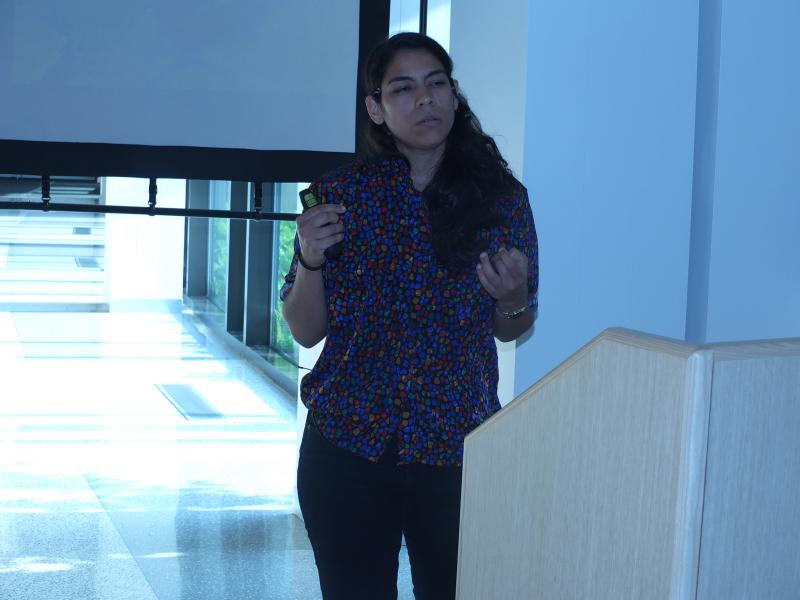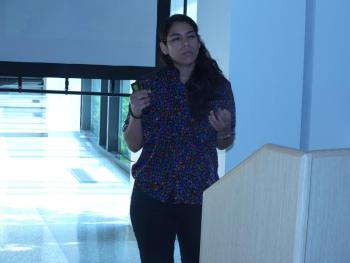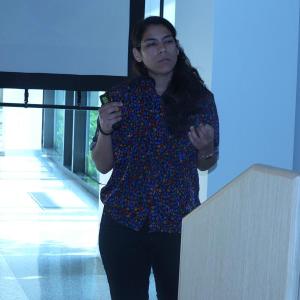Bigelow researcher discusses possiblility of life beyond Earth
For those who have ever looked into the night sky seeing an endless parade of stars and wondered, is there life out there, a Bigelow researcher has an answer. Dr. Jackie Goordial researches how microbial life evolves, persists and acquires energy in extreme environments on Earth.
In a Cafe Sci presentation Aug. 7, Goordial said she believes life in outer space is possible in the forms of microbes. She was the featured speaker at the Bigelow Laboratory-sponsored program. Cafe Sci is a long running Bigelow program engaging the public with local ocean researchers on critical issues and groundbreaking science.
Goordial presented “Are we Alone?: What microbes can tell us about possible life on other planets.” She studies microorganisms in the deep biosphere and polar environments in which nutrients, energy and biomass are scarce.
As a scientist, Goordial has found life in one of the most unlikely locations on Earth: Antarctica. Her research team studied Antarctica’s soil and rocks and found low levels of microbes –a general term for life forms of dramatically different sizes and characteristics.
Goordial spent five years researching microorganisms in Antarctica. There is no animal or plant life in the Earth’s southern most continent and home of the South Pole, but there is life. Goordial examined Antarctica’s soil in an ice-free patch in the continent’s University Valley and in rock samples. She discovered the samples had minuscule signs of microbe biomass (cell count).
Her research showed a significant difference between biomass samples in Canadian Arctic soil compared to Antarctica’s. Canadian Arctic biomass registered 1,000 per gram. The warmer Canadian Arctic samples registered about 10 million per gram.
When Goordial experimented by warming up Antarctica soil samples, more biomass appeared. In her presentation, Goordial commented that for nearly 200,000 years ice had covered the majority of Antartica. “The site isn’t dead, just dormant. Life is adaptable. It may be these microbes are just hiding out and may appear if conditions change,” she said.
So if life is found in the coldest locations on Earth, then can it be found elsewhere in the solar system? This is a topic studied in the field of astrobiology, a branch of biology studying life on Earth and elsewhere in the universe. In studying how microbes survive on Earth, Goordial found temperature, food sources, energy and water as key factors in their survivability. So if microbes are “hiding out” on planets, moons and stars, then they may emerge if conditions change.
Goordial used examples of ice on Mars and moons of Jupiter and Saturn as a possible starting point for discovering life in the solar system. “If life can thrive in extreme environments on Earth then it’s very possible for survival in similar environments on other planets and moons,” she said.
This was the fifth of six Cafe Sci’s held at Bigelow this month. Over 150 guests attended Goordial’s 90-minute presentation. The final summer Cafe Sci is scheduled for 5 p.m. Thursday, Aug. 14. Dr. Doug Rasher will present “Guardians of the Reef: Identifying the species that promote coral reef recovery.”
Event Date
Address
United States























